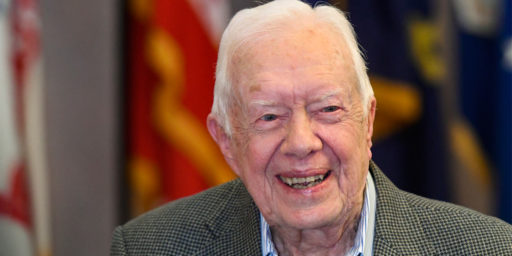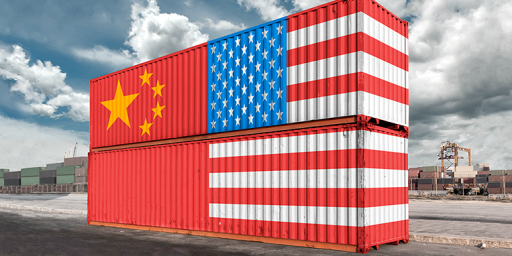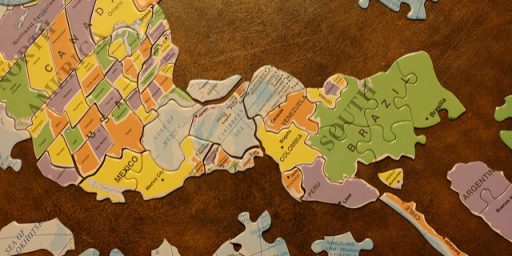Jimmy Carter Endorses CAFTA
At long last, Jimmy Carter does something right. Here is the State Department press release:
Former President Carter Supports U.S.-Central American Trade Pact
In a June 8 letter to congressional leaders including Senate Finance Committee Chairman Charles Grassley and House Ways and Means Committee Chairman Bill Thomas, Carter said CAFTA will raise incomes in both the United States and the other signatory countries, as well as create jobs and improve labor standards throughout Central America.
Carter said the democratically elected governments of the CAFTA countries have staked their credibility on CAFTA and other market reforms, and he warned that if the U.S. Congress were to reject CAFTA, “it would undercut these fragile democracies, compel them to retreat to protectionism, and make it harder for them to cooperate with the U.S.”
“For the first time ever, we have a chance to reinforce the democracies in the region,” Carter said. “This is the moment to move forward and to help those leaders that want to modernize and humanize their countries.”
The former U.S. president added that stronger economies in the region would also serve to deter illegal immigration from the region.
With this endorsement, he joins the New York Times editorial board on the liberal side. Despite concerns about the Bush administration’s commitment to displaced American workers, the Gray Lady believes that CAFTA brews the “classic free trade formula,” which, “for all the short-term pain it causes, provides for an overall gain in general economic prosperity.” Moreover, the paper urges Democratic consistency:
[M]any Democrats are protesting that the pact does not go far enough to protect labor and environment in Central America. It would be easier to believe Congressional opponents really did care about protecting labor and environmental standards in other countries if many of them had not also voted in favor of an American-Jordan free trade accord, which included nearly identical language on labor and environment. Cafta actually goes further than the pact with Jordan, since penalty fines collected for not enforcing labor laws would be sent back to the offending country to fix the offense. If, for instance, the United States won a case charging that El Salvador didn’t have enough inspectors in its factories, the fine that the El Salvadoran government paid would go toward hiring more inspectors, instead of just ending up in the United States Treasury.
The Office of the United States Trade Representative has many other examples along these lines. Check them out.
While the administration enjoys some liberal support, it still has a long way to go before securing the deal. Indeed, it’s been making notable concessions the past few days. Bill Thomas, the chairman of the House Ways and Means Committee, expressed his willingness to connect a China trade bill with CAFTA, even though Commerce Secretary Carlos M. Gutierrez insisted a month ago that “CAFTA can’t be held captive to China or any other trade problem.” Earlier today, Republicans said that additional labor-rights provisions could be further bargained.
The White House claims to have negotiating room, which it can purportedly use to get an acceptable compromise. But it needs to be careful about watering down the agreement. Excessive concessions could complicate talks with Central American partners, worsen other diplomatic issues (like China), and, on a substantive level, reduce potential trade gains. At some point, Bush just has to stand firm. Otherwise, he risks giving Democrats the political upper hand and perhaps ultimately losing necessary momentum for the Hong Kong Ministerial Conference.






Jimmah must have been trying to use up his medical marijuana before the Supreme Court comes to relieve him of his stash…